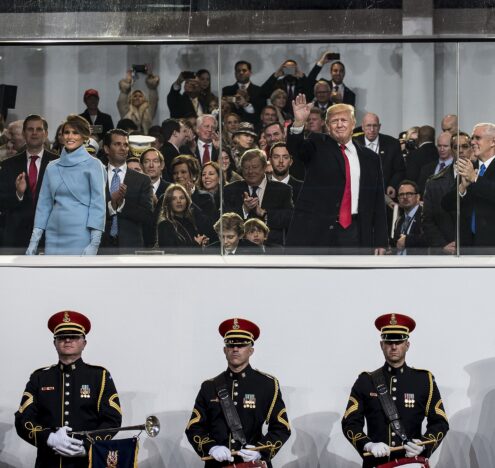On Oct. 13, 1990, Lebanon’s civil war officially ended. The leaders of the various fighting factions had reached something of a stalemate as Syria’s army occupied much of the country, so in 1989 the surviving members of Lebanon’s last parliament — elected in 1972 — adopted the Ta’if agreement, where the power balance would be redrawn between religious sects. Five months after the war’s official end date, all stakeholders agreed on amnesty, which decided that none of the war’s various forms of violence, including murders and massacres, would be prosecuted at any point in the future. That decision has shaped the post-war period, paving the way for morally corrupt warlords to become a class of kleptocrats that occupy official government posts. More significantly, this new political system meant that pursuing justice was inconceivable and potentially lethal.
Since the war ended, the country has seen dozens of journalists, thinkers, politicians, and security agents assassinated. After each one, Lebanon’s political class has united in maintaining an impunity climate. Sometimes, it’s widely known who is behind the murders. According to them, the pursuit of justice for political assassinations would unravel the fragile status quo and plunge the country into civil war. That nihilist logic has accelerated Lebanon’s demise by discouraging and blocking efforts to hold perpetrators accountable.
THE WAR THAT NEVER REALLY ENDED
When Lebanon’s 15-year civil war ended, violence was still a part of most people’s daily lives. The country largely fell under foreign control, with the south occupied by Israel and the rest under Syrian hegemony. While the liberation of the south in 2000 was cause for national celebration, the country was — and remains — split over the role of Syria in Lebanon. For Syria’s allies, the neighbor to the east and north acted as a political stabilizer that kept the Lebanese from regressing into confessionally divided violence. But anyone who vocally opposed Syria’s influence was met with strong-armed repression — or even killed.
When Lebanon’s 15-year civil war ended, violence was still a part of most people’s daily lives. For example, anyone who vocally opposed Syria’s influence was met with strong-armed repression — or even killed.
According to multiple research institutes documenting the subject, Lebanon has averaged more than one political assassination a year since independence in 1943. Since then, around 200 political murders or attempted murders have been recorded in Lebanon. But the violence is rarely evenly distributed. It comes in spurts.
In 2005 alone, more than a dozen bombs exploded around the country. The assassinations started with an explosion that killed former Prime Minister Rafik al-Hariri and 21 others on Valentine’s Day. The murder of Hariri, a figure who had worked mainly in collaboration with Damascus, set off a series of protests that would officially end Syria’s 15-year occupation of Lebanon. Suddenly, the shackles of fear were gone, and various journalists and politicians started criticizing Syria’s role in Lebanon in ways Hariri never had.
But while Syria’s troops were gone, they maintained considerable influence over Lebanon’s security forces and one of its two most powerful political blocs. Syria’s influence was evident with the killings of former Communist Party leader Georges Hawi and journalists Samir Kassir and Gebran Tueni later in 2005. All three men were outspoken critics of Damascus’ role in Lebanon.
Two other journalists were also targeted with car bombs that year, as was the Lebanese Defense Minister Elias Murr. Three more members of parliament — all critics of the Syrian regime — would be assassinated in the next two years, along with a terrorism investigator from Lebanon’s Internal Security Force who had been investigating Hariri’s murder. In addition, the publisher and activist Lokman Slim was executed less than a year after receiving death threats containing Hezbollah slogans. Slim said that should anything happen to him, he held Hezbollah and their allies Amal culpable. Of all the people attacked, only Murr was notably pro-Syrian.
THE ROLE OF AMNESTY
The use of political assassinations in Lebanon is not exceptional. Like elsewhere in the world, they are used as a tool to protect privilege and political power. In Lebanon, that power is most notably represented by Hezbollah, the only political actor to retain its arsenal of weapons after the civil war ended. Only Hariri’s assassination would arguably undergo a serious investigation and judicial process out of these assassinations.
The Hariri trial took place because of UN intervention in the form of the Special Tribunal for Lebanon. Lebanon’s High Judicial Council, a body that recommends judges to specific courts, is neither independent in its appointments — 8 of 10 are chosen by the executive branch — nor in its financing, which comes from the Justice Ministry. Their decisions are also not subject to appeal. Moreover, all three men convicted of planning Hariri’s murder were Hezbollah operatives. So it took an international tribunal to do what a Lebanese court never could. And it still took 15 years.
The amnesty declaration strips Lebanon of justice in the past, and the politically weighted judicial system often robs it in the present and kills expectations that it may, one day, rear its head in the future.
Many in Lebanon have memories of violence, even massacres. But those crimes can never turn into anything more than memories. The amnesty declaration strips Lebanon of justice in the past, and the politically weighted judicial system often robs it in the present and kills expectations that it may, one day, rear its head in the future. The hopelessness is also due to the fact that while Hezbollah and their pro-Syrian allies might be the prime suspects behind many of the political killings, their political opponents are not willing to publicly stand against them. That may be because political figures who have shown a willingness to play the game and maintain the status quo can enrich themselves via the state’s coffers, increase their political power, or both. On the other hand, bravery might be rewarded with political isolation, smears from one of the country’s many politically owned media channels, or a footnote on a Wikipedia page as the country’s latest unsolved political murder. For example, in 2013, an explosion rocked central Beirut killing eight people, including Mohammad Chatah, a former aide to senior figures in Hariri’s Future Movement and a former finance minister. Chatah’s former employers told one of his sons that the killers were known and would be arrested. Yet, there has been no progress almost nine years later.
“It was a political decision not to pursue those answers,” a former minister of the interior and member of the Future Movement told Chatah’s son in 2019. “The situation in this country does not work in favor of men like your father. And regardless, it was beyond my control.”
Hezbollah has profited from the post-war political system due to its military arsenal. According to the Center for Strategic and International Studies, Hezbollah was called the “world’s most heavily armed non-state actor” in 2018, despite losing heavily in the Syrian civil war. Therefore, even if trials could move forward, they would be near impossible to enforce — as the international tribunal for Hariri’s murder shows.
“The lack of rule of law and inability to enact justice is accepted as part of polity in Lebanon due to Hezbollah’s disproportionate power,” Dr. Drew Mikhael, a senior research fellow at Queen’s University in Belfast, told Inkstick over the phone on Apr. 4, 2022.
And while many others in the political establishment enjoy less power, they’ve still profited handsomely. Hezbollah has evolved into protectors of a system where impunity reigns and the corrupt profit. Even if they were to give up their arms, the profitability of post-war amnesty could mean that another hegemon may be interested in maintaining the status quo.
MAINTAINING THE STATUS QUO
The power imbalance creates the conditions for political murder, where the overwhelming bulk of the responsibility lies. But while there is a real fear of fatal repercussions, at what point does accepting the status quo and profiting from it devolve into a form of collusion?
Lebanon’s power imbalance is currently protected by regional and international interference by Syria and Iran. There’s been plenty of interference from western powers and their Gulf allies too, notably Saudi Arabia which is notorious for handling dissidents in their way. All parties have flooded the country with money and sided with actors that strip the Lebanese of justice — first through amnesty and now through politically weighted courts that serve the country’s warlords turned kleptocrats.
While many still fight, most notably the families of victims who perished in the Aug. 4, 2020 Beirut port blast, few have experienced real justice in Lebanon, which has led to a sense of fatalism or even nihilism in the Lebanese collective imagination. According to Human Rights Watch, since the blast, security services have treated four politically sensitive murder investigations with “gross negligence.” Some of the murders, if not all, could be connected to the information behind the blast.
Elections, set for mid-May, are another avenue for reform. Still, only 45% of voters who took part in Lebanon’s last elections in 2018 said they would vote for new parties, according to polls conducted by the Konrad Adenauer Stiftung Foundation. Moreover, half the population doesn’t plan to vote at all, which indicates a sense of dissatisfaction with the political system, and the idea that justice will never be received.
“Because of the trust the Lebanese have towards the government, it is highly likely that a large number of Lebanese people will simply not vote because they don’t trust that the interior ministry will hold elections with integrity,” Amal Hamdan, an electoral systems and framework expert, told Al Jazeera.
Still, civil society is fighting for an independent judiciary. Lebanon’s political elite has conspired to create one of the world’s worst economic crises in over 150 years, leading to mass emigration in 2019 as many begrudgingly join their compatriots abroad in the Lebanese diaspora.
Bestowed with total impunity, perpetrators assassinate rivals to reinforce red lines against political foes. This is the legacy of post-war amnesty, still robbing victims of justice 32 years later.
Justin Salhani is a Paris-based writer, journalist, and producer interested in identity, migration, Lebanese society and politics, cosmopolitanism, and the anthropology of soccer, among other things that don’t fit in a short bio. He has previously been based in Beirut, Washington, DC, and Milan.




















